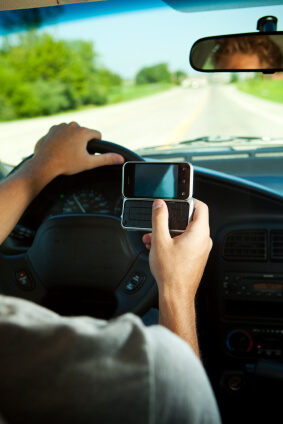Impaired driving can present in different ways. You may not think there is anything affecting your ability to drive if you haven’t taken a drink, consumed a drug, or are otherwise under the influence, but if you are feeling different in any way, then your driving will be different too, and that can lead to an auto accident.
1. Drunk Driving
The National Highway Traffic Safety Administration reports that alcohol-related fatalities are nearly twice as high for people age 18, 19, and 20 as those over the age of 21. Though young drivers are less likely to drive after drinking, when they do opt to get behind the wheel their crash risks are much higher, even if they have low or moderate blood alcohol concentrations. Teens are new, inexperienced drivers – anything that compromises their ability to concentrate on the road is the fast track to car crashes.
2. Drugged Driving
There is more than one way to be under the influence. While impaired driving is usually associated with alcohol or illegal drug use, many drugs obtained legally or even over the counter can affect your ability to drive safely. Anything from cold and allergy medicines to antidepressants to sleep aids have side effects that can affect a person’s driving ability. Drowsiness, dizziness, blurred vision, and slowed reflexes are all possible results of taking a prescribed medication. When a drug cautions against “operating heavy machinery,” that includes driving a vehicle.
3. Drowsy Driving
Drowsy driving can mimic drunk driving or distracted driving. It can be caused by taking drugs or drinking alcohol, or it can simply be the result of not getting enough sleep. Drowsy drivers, just like all other impaired drivers, cannot accurately assess their own abilities and have slower reaction times. This can lead to dangers like dozing off, completely falling asleep at the wheel, and, as a result, veering into oncoming traffic, out of your lane, off the road, or into an unmoving object.
4. Distracted Driving
Distracted driving continues to grow and has become just as big of a problem as drunk driving. If you’re operating a vehicle, your mental and physical focus should be on the task at hand and nothing else. That means putting your mobile phone away, not tending to things on the dashboard or passengers in your vehicle, and pulling over in a safe spot if there is a call you must take or a child you must address in the backseat that just cannot wait.
Components of Impaired Driving
Many substances and behaviors can impair driving, and impaired drivers cannot accurately assess their abilities. Altered depth perception, slow reaction time, poor judgment, confusion, lack of awareness and surroundings, reduced peripheral vision, and even hyperactivity from a high all influence driving behavior – and not in good ways.
If you are involved in a car crash with an impaired driver, contact Femminineo Attorneys in Mt. Clemens, MI, to discuss your case.



